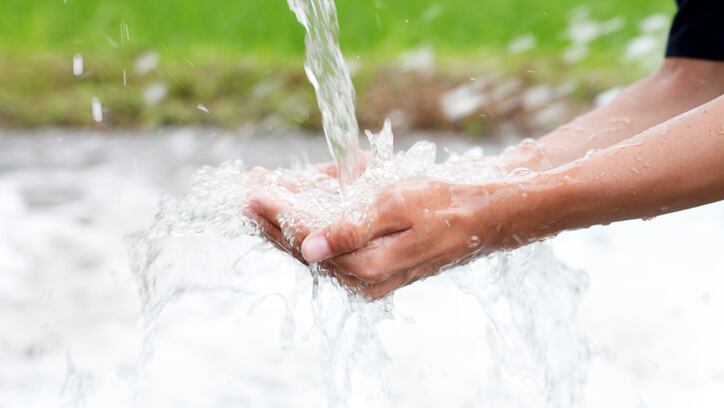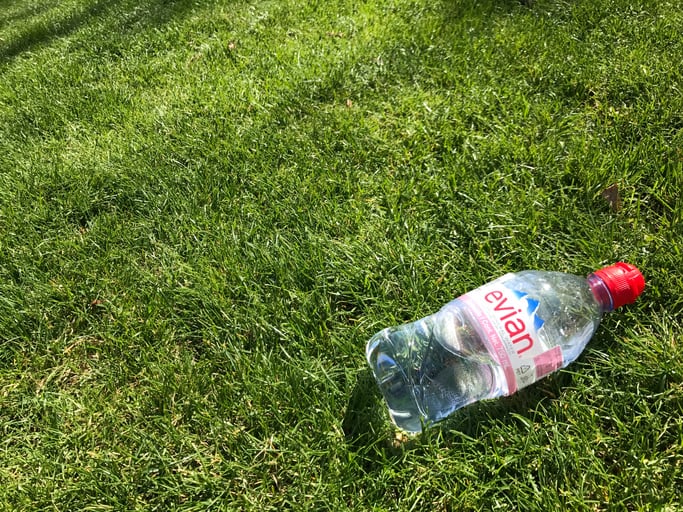Sustainability and stewardship are two of the most important areas of focus for today’s industry, according to Zenith Global chairman Richard Hall. "Plastic has moved to the forefront of policy and debate," he said. "The stewardship dimension is also becoming increasingly important."
These two key areas will be under the spotlight at the 15th Global Bottled Water Congress in Evian, France, next month (October 22-24). The congress will include a tour of evian’s carbon neutral bottling plant, which was opened last year, alongside its catchment plateau and biogas facility.
Thinking of future generations
The concept of ‘sustainability’ is broad and complex but now generally recognised as an important consideration for any brand or company. While protecting the environment is a key pillar of the definition, so is the protection of people’s health and wellbeing throughout the supply chain. The UN’s definition of ‘sustainable development’ says it is ‘development that meets the needs of the present without compromising the ability of future generations to meet their own needs’.
Bottled water has the smallest water and energy footprint of any packaged beverage (IBWA)
In the bottled water industry, sustainability considerations have to take place across the supply chain: from how water is sourced, to the material used in each bottle, through to how packaging is collected and recycled.
According to the International Bottled Water Association, bottled water has the smallest water and energy use footprint of any packaged beverage: with 1.32 liters of water (including the liter of water consumed) and 0.24 mega joules of energy used to produce one liter of finished bottled water.
It points out that other beverage industries have higher intensity processes such as flavor mixing, blending, carbonation, fermentation, distilling etc.
But the biggest challenge to the bottled water industry, perhaps, has always been the question: ‘Why don’t you just drink tap water?’
Richard Hall, chairman of Zenith Global, however, argues that bottled water should not simply be approached as an alternative to tap water; it is far more often an alternative to carbonated soft drinks and other beverages.
“Bottled water is subject to many misconceptions,” he said. “First, it is not a simple substitute for tap water: it is an alternative to other flavored beverages. Since we overeat and under-hydrate, all water consumption should be encouraged.”
Meanwhile, packaged water has a key role to play in developing economies where the availability and safety of public water supplies is not assured; while in developed economies, it offers a valuable alternative to beverages with calories, especially while on the go.
“Packaging has multiple benefits: it reduces product waste, protects the safety of products, looks good and transports well," said Hall. "It can be reused, and recycled. In many countries, bottled water is essential because of concerns about public water availability and quality.”
But what happens to plastic bottles – or any containers used to package water – is indeed a focus point for the industry, as it is across all sectors.
“The challenge is far wider than bottled water, because collection, recycling and reuse are much weaker than they should be," said Hall. "Bottled water plastic recycling, however, is higher than for many other products.”
Collection and recycling rates vary greatly between countries (in Europe, some countries collect more than 90% of PET bottles while others collect less than 20%); as do rates between plastic bottles and other packaging formats such as cartons, cans or bottles.
Meanwhile, a number of brands are seeking to increase the amount of recycled content used in bottles (the European Federation of Bottled Waters, for example, wants to see bottles across the continent use at least 25% rPET by 2025; while evian has pledged to use 100% rPET by 2025; and Coca-Cola 50% rPET by 2030). However, another challenge comes from the amount of quality rPET available for use.
Other initiatives include plant-based plastics or biodegradable plastics; although these each come with their own considerations such as meeting food safety standards or how they can be incorporated into existing recycling streams.
What is water stewardship?

Plastic bottles may be at the forefront of consumers' minds: but in the bottled water industry the concept of water stewardship is also becoming increasingly important.
The global ecosystem relies on fresh water to survive: yet supplies are under increasing pressure as the human population and pollution grow.
As the WWF puts it: ‘Water stewardship is about businesses understanding the risks they face from water scarcity and pollution, and taking action to help ensure water is managed sustainably as a shared, public resource.’
Stewardship also, however, goes beyond being an efficient water user. ‘It is about the private sector collaborating with governments, other businesses, NGOs, communities, and others to protect shared freshwater resources.’
The Alliance for Water Stewardship runs a globally-applicable framework for major water users to understand their water use and impacts, and work collaboratively and transparently for sustainable water management within a catchment context (the AWS Standard).
Water stewardship: What the big companies say
Coca-Cola
Take on water stewardship: “Our water stewardship program is grounded in responsibility, but we also have a vested business interest. If communities stay strong, our business will stay strong; if the watersheds we share with them are conserved, those communities, and our business, can thrive.”
Commitments: By 2020, return to communities and nature an amount of water equal to what is used in finished beverages and their production; and improve water efficiency in manufacturing operations by 25% compared with a 2010 baseline.
Nestlé Waters
Take on water stewardship: ‘We believe that governments have to take the lead in establishing over-arching water policies within which we and other water users can operate. Nestle Waters is willing to assist in this process, is committed to developing our business in a way that facilitates effective water stewardship in the geographies we source from and operate within, and we are committed to focusing on measures that are cost effective and relevant within a watershed’
Commitments: All Nestlé Waters factories to be AWS certified (Alliance for Water Stewardship) by 2025. Eight facilities are already certified.
Danone
Take on water stewardship: ‘Our water stewardship strategy is as local as water challenges are…. this is why we are focusing our actions in the most at risk areas by supporting locally adapted solutions to water quality, quantity and access’.
Commitments: Four water stewardship pillars: reducing water in operations; protecting ecosystems; promoting sustainable agriculture; increasing access to safe drinking water for populations.
Sustainability and stewardship in action: evian
Danone natural mineral water brand evian recently became certified as a carbon neutral brand in the US and Canada, marking a ‘major milestone’ in evain’s journey to reach worldwide carbon neutrality by 2020. It has also pledged to make all bottles from 100% rPET by 2025, up from its current content of 25%.
The brand, which is sold in more than 140 countries, is sourced in the French Alps. Its carbon neutral bottling facility in Evian-les-Bains is the showpiece of a €280 million investment that Danone has made in the brand between 2011-2020.
The 15th Global Bottled Water Congress will allow delegates to see behind the scenes for the brand, which has 10 production lines up to 72,000 bottles per hour. The facility is powered by 100% renewable energy and treats and recycles 100% of its waste.
The plant tours will be followed by a two day congress with speakers from the biggest bottled water companies – Nestle Waters, The Coca-Cola Company and Danone – as well as start-ups and established businesses that are pushing the boundaries of the category, such as supercharged ionized alkaline water Essentia and Norwegian premium brand Voss.
In the run up to the event, Zenith Global will host a free webinar on Global Bottled Water Trends on September 19.

